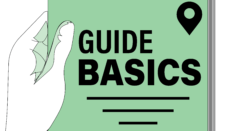The word commerce has its etymological root in the Latin commercium, whose meaning is that of “purchase and sale of merchandise”. At the same time it comes from the word “merx” and “mercis”, whose meaning is “merchandise”. This term has different meanings.
Commerce is any activity in which an exchange, purchase or sale of goods or services takes place, through the purchase and sale. In it, the seller and the buyer benefit and other intermediate elements that are part of the process are present.
This word can also be defined as the set of negotiations that are part of the process or the class or group of people who are engaged in commercial activity.
On the other hand, the term trade is also used to refer to any store, establishment or place where acts related to the trade itself take place.
Job specialization
- Trade as such has been greatly favored by specialization in work, since in the industrial world some companies need others both to supply themselves and to produce, and vice versa.
- This is what makes trade central to the economic engine domestically and internationally. Depending on the resources available to a region, there may be a greater incidence of one type of trade or another.
- The producing companies are in charge of promoting and trading the merchandise, with the final consumer being the one who enjoys it.
Types of trade
Depending on the scope of the companies we can distinguish between the following types:
Retail trade (retail)
Retail is characterized by selling individual or small-quantity products to consumers. It acquires its merchandise from wholesalers, from which it buys in volume, selling these products later to the end customer, who is charged the corresponding taxes.
It is a type of internal trade, since it takes place within the same national territory.
Wholesale trade (wholesale)
The wholesale or wholesale trade is one that is responsible for buying the products from manufacturers or agents and then resells them to distributors or stores that buy them by volume. Their regular customer is retailers, although they can also make sales to end customers on occasion.
The wholesaler is responsible for selling items in large quantities, making their unit prices cheaper.
Electronic commerce
E-commerce has proliferated in recent years. This is about buying and selling products through electronic devices. The most widely used tool is the Internet, this trade being known as e-commerce.
In this sense, it can be a unique sale option for some businesses or complementary to traditional commerce. In this sense, it must be taken into account that there are different types of electronic commerce, among which are:
- Consumer to business: This occurs when a private person, that is, a consumer, announces on some type of platform that they need a product, which means that different suppliers can contact them to sell their merchandise.
- Mobile commerce: In this case, the person who buys a product or hires a service does so over the Internet using their mobile device, be it a tablet or smartphone.
- Business to consumer: It takes place when companies, whether physical or not, are in charge of offering their products or services to end customers through a web page.
- Business to business: In this case, the purchase and sale of the product takes place between two or more people, being products that are used to make other types of products.
- Consumer to consumer: In this type of trade, one person is in charge of buying and selling one product to another. This is the usual case of trading platforms.
Types of merchants
The person engaged in trade is called a merchant, like the owner of a commercial establishment. The main function of him is to buy and sell merchandise to obtain economic benefits for it.
It must be taken into account that in trade there can be two different types of traders mainly, which are the following:
Individual trader
The sole trader is one who carries out business activities in his own name, as a natural person. This may be the owner of a company and must have sufficient legal capacity to be able to carry out their commercial activity.
Collective merchants
For its part, a collective trader is one that is associated with one or more people with a contract, through which they share different activities or goods to form a commercial company.
They will obtain benefits from it, being a type of company that is formally constituted, forming a legal person.
Items of trade
In commercial activity there are different elements that are essential for the development of this process. This is the case of: manufacturer, distributor and consumer. In addition, there must be a regulation that is in charge of its regulation.
Maker
- The manufacturer is the first element of a trading process. This is in charge of the manufacture of the products that will later be marketed, for which it makes use of different raw materials.
- These products are mass-produced to meet existing market demand and reach the largest possible number of end customers.
- In the manufacturing process, all the required information related to the company that is behind its manufacture must be placed.
Distributor
- The distributor is in charge of buying the products from the manufacturer to later distribute it to retailers, which are the ones that sell the product to the final customer or sell it directly to the final consumer. It acts as an intermediary, adding an additional cost to the product with respect to the factory price.
- On some occasions, distributors are exclusively for one brand. There are also others who sell products to other distributors and those who sell them exclusively to retailers. In any case, the distributor is a key element as it is the link between the manufacturer and the customers.
Among the distributors one can distinguish between agents, wholesalers and retailers.
Consumer
- The consumer is the one who demands a good or service from its suppliers in exchange for money. In this case it can be both a legal person and a natural person. These products are meant to fill a need.
- The consumer is the one who consumes or uses the product, so it is the final objective of the trade and the one that closes the chain. The advertising campaigns are directed towards him. It is the most important element of commerce, since it will depend on whether there is demand for a service or product and make companies take charge of its manufacture.
- In addition, depending on their way of acting, they will directly influence the manufacturer’s decisions regarding the product and everything that surrounds it.
